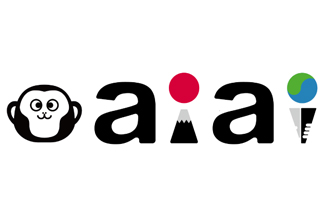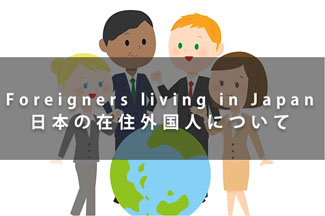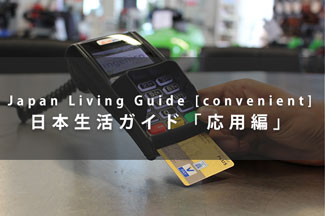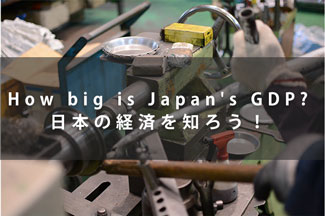【先に知って納得】「日本企業の4つの特徴」を知ろう!
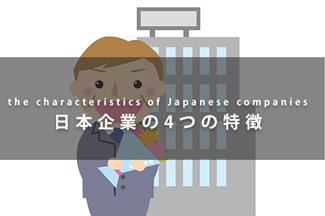
- CONTENTS -
1、日本企業の4つの特徴まとめ
各国で働き方や仕事の文化は大きく違います。
その違いが分かっていないと外国で働く時に戸惑いが多く生じてしまいます。
日本で初めて就職するときは日本での働き方の特徴を知っておくようにしましょう。
日本企業の大きな特徴は4つあります。
「新卒一括・ポテンシャル採用」「ジョブローテーション」「年功序列」「終身雇用」です。
年功序列と終身雇用は今は変わりつつあり、採用していない企業も多くあります。
しかし、それに比べて新卒一括・ポテンシャル採用とジョブローテーションは取り入れている企業が多いと言えるでしょう。
次の項目でそれぞれを詳しく見ていきます。
The way of working and work culture is very different in each country.
If you don't understand these differences, you will get confused when you work in a foreign country.
When you first start working in Japan, it is important to know the characteristics of the working style in Japan.
There are 4 main characteristics of Japanese companies.
They are "batch hiring for new graduates/potential hiring," "job rotation," "seniority-based system," and "lifetime employment".
Nowadays, the seniority system and lifetime employment are changing, and there are many companies that do not employ them.
However, in comparison to these two types of employment, there are many companies that are employing new graduates, potential employees, and job rotation.
We will look at each of these in detail in the next section.
2、新卒一括・ポテンシャル採用
日本では、企業の採用枠は大きく分けて2つあります。
それは「新卒採用」と「経験者採用」です。
「経験者採用」はいわゆる転職者の採用ですが、多くの人の一番初めの就職は「新卒採用」から始まります。
経験者採用では多くの国と同様、その方の仕事の経験・スキル・技術、などを元に判断され採用が決まります。
しかし、新卒採用では、一部の仕事を除いては、これまでの仕事(アルバイト・インターンなど)の経験やスキル、技術が選考の一番重要なポイントではありません。IT関連のエンジニアなど、未経験や技術がなくても採用されています。
そのため、文系の学部出身者がエンジニアになることもあれば、理系の学部出身者が経理や営業などの仕事に応募し、採用されることは普通なのです。
日本での就職活動において、「自己PR」や「学生時代に頑張ったこと」などをアピールするのはそのためです。
〇〇といったスキルや技術があるから〇〇という仕事に役立ちます、だけではダメなのは、その方がどのくらいやる気があり、学ぶ気があり、どれくらい今後活躍してくれるか、人間性の部分を企業が見たいからなのです。
それがポテンシャル採用と呼ばれる理由です。
スキルや技術で勝負するわけではないので、説明がしにくいかもしれませんが、逆を返せば、すこし技術が足りなくても、やる気や想いでカバーできるという利点があります。
In Japan, companies have two main hiring categories: new graduates and experienced personnel.
They are "new graduates" and "experienced hires".
Experienced hiring" is for people who have changed jobs, but most people's first job opportunity starts with "new graduates".
In experienced hiring, as in many countries, you are judged and hired based on your work experience, skills and techniques.
However, with the exception of a few jobs, new graduates are not selected on the basis of previous work experience (e.g., part-time work or internship), skills and techniques. Of course, engineers at manufacturers are different. However, for IT related engineers, of course they will hire people with no experience.
That's why it is common for people with a liberal arts background to become IT engineers, and for people with a science background to apply for jobs such as accounting or sales and get hired.
This is why you need to promote yourself and what you did well in your school days when you are job hunting in Japan.
It is not enough to just say "I have certain skills and techniques that will be useful in a job like XX" because companies want to see how motivated you are, how willing you are to learn, how active you will be in the future, and your humanity.
That's why it's called potential hiring.
It may be difficult to explain, because it is not based on skills and techniques, but the advantage is that even if your skills are not as good as they could be, you can still make up for it with your motivation and enthusiasm.
3、ジョブローテーション
日本企業の特徴の2番目は「ジョブローテーション」です。
ジョブローテーションとは、様々な部署で様々な仕事をする、という事です。
転職者対象の経験者採用では、特定の職種、例えば「経理」や「デザイナー」「SE」「医療事務」など、で募集することが殆どで、あまり、他の仕事へのチェンジは少ないかもしれません。
しかし、「新卒採用」の場合は「総合職」として採用することも多いです。
「総合職」というのは、色々な部署でいろいろな仕事をする職種で、日本独特かもしれません。
外国人の方は、ビザにあったお仕事しかできませんので、「総合職」というのは難しく「〇〇職」になるかと思います。しかし、日本での総合職、という考え方から、職種を横断したような仕事の仕方も一般的なのです。
例えば、営業はお客様と折衝する仕事、事務はその際に必要な書類を作成する仕事、とたとえ分かれていても、場合によっては、営業が書類を用意したり、事務が営業に代わりお客様に連絡をする、というようなことは起こりうるのです。
ですから、自分の職種は〇〇職だから、この仕事しかやらない、この仕事はやらない、といった考え方は通用しないのです。
そして、総合職という考え方から、最初の1年間は様々な部署でいろいろなことを学ぶ研修、というようなことがあるかもしれません。自分が入社する際は、外国人雇用に慣れている会社であればよいですが、あまり外国人がいない場合には、申請の際にこの1年間の研修をきちんと説明しないと不法就労とみなされてしまう可能性があるので、きちんと自分から会社に確認するようにしましょう。
The second characteristic of Japanese companies is "job rotation".
Job rotation means working in a variety of jobs in various departments.
In the hiring process for experienced job seekers, most of them are recruited for specific jobs such as accounting, designers, SE and medical office work.
However, in the case of "new graduates", most of them are hired as "career-track jobs".
This is a type of job that does various jobs in various departments, which may be unique to Japan.
Since foreign nationals are only allowed to work in jobs that match their visa requirements, it is difficult to call it a "general position" and it is likely to be a specific position. However, because of the Japanese concept of a "sogo shoku", it is also common for jobs to be classified into a variety of different types of work.
For example, even if there is a division between sales and marketing and office work, it may be possible for sales to prepare documents or for office work to contact customers on behalf of sales, depending on the situation.
Therefore, it is not acceptable to think that you can only do this job or that job because you are in a "XX" position.
Also, due to the concept of a career-track position, you may be given training in various departments during your first year of employment to learn various things. However, if there are not many foreign nationals in the company, there is a possibility that you will be considered to be working illegally if you don't explain this year's training properly at the time of application to Immigration Department, so be sure to confirm this with the company yourself.
4、年功序列
日本企業の3つ目の特徴は「年功序列」です。
日本では昔はもともと転職する、という考えがあまり一般的ではなく、一度その会社に入ったら定年まで働き続けるのが一般的でした。そして女性は結婚したら、寿退社、といって退社するのも普通でした。
しかし、いまでは、女性も様々な働き方をして、子供ができても働きますし、男性も、キャリアップなどのために転職するのが普通になってきました。
そのため、この年功序列というのは今では薄れてきているのも事実です。
年功序列というのは、年齢に応じて、位があがっていき、またそれに伴い給与が上がっていく、という制度です。
あまり成果を残せていなくても、ある程度の年齢になると、係長・課長・部長などと役職を与えられていく、ということです。そして、長く働いていれば自然とお給与がたくさんもらえる、ということです。
これは悪い意味ではなく、その会社への忠誠心が高くなり、より多くの成果を残して会社に貢献しよう、という考えを浸透させることができます。
しかし、今では、上記のことから少なくなってきましたが、それでも大手企業などを中心にこの文化は残っていますので、把握しておきましょう。
The third characteristic of Japanese companies is the "seniority system".
In the olden days, it was not common in Japan for people to change jobs. Once a woman got married, it was common for her to leave the company for good, saying "kotobuki taisha".
Nowadays, however, women also work in various ways and continue to work even after they have children, and it has become common for people to change jobs for career advancement.
So it is true that this seniority system is fading nowadays.
The seniority hierarchy is a system in which your salary increases as your age increases.
In other words, even if you have not made much progress, when you reach a certain age, you will be given a position such as section head, manager, or general manager. And if you work there for a long time, you will naturally receive a large salary.
This is not a bad thing, but it makes you more loyal to the company and instills in you the idea that you should contribute to the company by achieving more.
Nowadays, however, this culture is becoming less and less common due to the above, but it's important to keep track of it, as this culture is still present, especially in large companies.
5、終身雇用
終身雇用とは、入社から定年まで従業員を雇用する制度を言います。一般的には正社員を対象に考えられます。
前項で説明した年功序列の制度とセットで考えられているような日本の特徴です。
年功序列による、年齢による役職や給与UPが今はあまり一般的でなく、成果主義が台頭してきている、という背景から、この終身雇用も影を潜めてきています。今では、転職も当たり前になってきています。
生涯の雇用が保証されますし、大手企業ならそれなりの退職金や場合によっては企業年金を受け取ることができます。そのため、ほとんどが大手企業への就職を希望していたでしょう。
もちろん現在でも、転職はせずに、ずっとこの会社で働きたい、と考えて就職活動をする学生は大勢いますし、企業にとっても、一緒に長く働いてほしい、という思いもありますので、そのために大手と呼ばれる企業への応募数は減らないのが現実でしょう。
Lifetime employment is a system of hiring employees from the time they join the company until they reach retirement age. It is generally thought of as a system for full-time employees.
It is a characteristic of Japan that is considered in combination with the seniority-based system described in the previous section.
With the rise of the performance-based system, this lifetime employment system has been overshadowed by the fact that seniority-based positions and pay increases based on age are not so common nowadays. Nowadays, changing jobs is becoming more and more common.
You are guaranteed employment for life, and if you work for a large company, you can receive a decent retirement benefit and in some cases, a company pension. For this reason, most of people would have wanted to work for a major company.
Of course, even today there are many students who are looking for a job with the idea that they want to work for the company forever without changing jobs, and companies also want them to work for a long time and contribute to the company, so the reality is that the number of applications to large companies is not decreasing.
